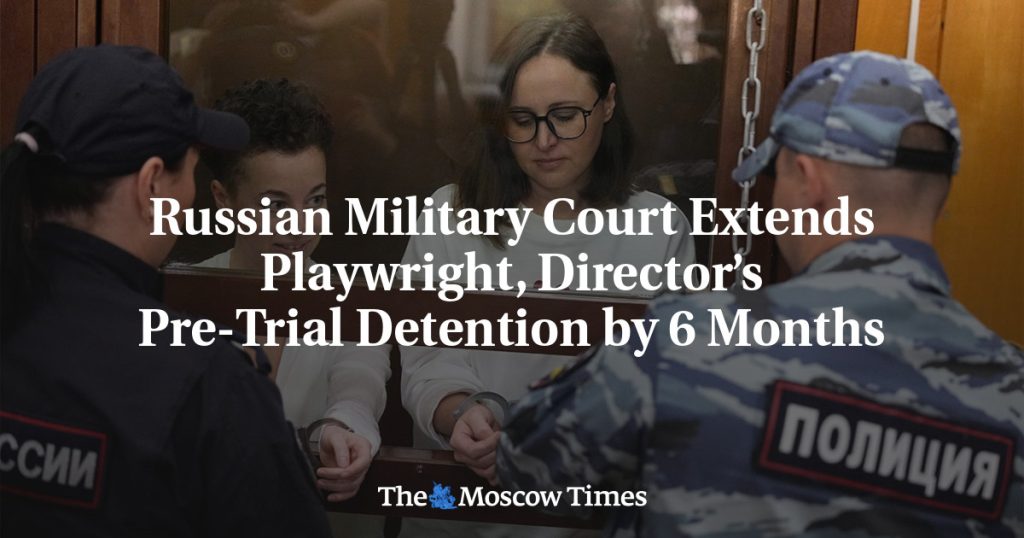Russian theater director Yevgenia Berkovich and playwright Svetlana Petriychuk have had their pre-trial detention extended by six months on charges of “justifying terrorism.” The charges stem from their award-winning play, “Finist the Brave Falcon,” which deals with Russian women who fall in love with Islamist militants. Facing up to seven years in prison if found guilty, both artists deny their guilt and were apprehended on May 4, 2023. Despite their pleas, the Moscow court upheld the prosecution’s request to keep them in pre-trial detention until October 22.
During the hearing, Petriychuk expressed her frustration, stating that it will soon be a year since their arrest and highlighting her lack of criminal record as a reason for why she could not possibly abscond. Berkovich, a mother to two adopted teenage daughters, has requested to be placed under house arrest instead due to concerns about the impact of her absence on her children. She fears that her absence could result in a psychological breakdown for them. However, her request was denied by the judge during the hearing, despite her emotional plea.
The possibility of a trial date being announced during the next hearing next Tuesday has been raised by the court. Mediazona, an independent news website, has reported on the developments in the case and provided insight into the legal proceedings. Berkovich and Petriychuk’s situation has sparked public outcry and concerns about freedom of expression in Russia. Many have criticized the government’s handling of the case and expressed support for the artists, emphasizing the importance of artistic freedom and freedom of speech.
This case highlights the challenges faced by artists in Russia who dare to push boundaries and address controversial topics in their work. The play in question, “Finist the Brave Falcon,” has garnered critical acclaim but has also landed its creators in legal trouble. Berkovich and Petriychuk’s dedication to their art and their willingness to tackle sensitive subject matter has put them at odds with authorities, leading to their arrest and prosecution. The outcome of their trial will have far-reaching implications for the artistic community in Russia and the future of creative expression in the country.
As the court proceedings continue, Berkovich and Petriychuk remain steadfast in their denial of the charges and their commitment to defending their artistic vision. Supporters of the artists have called for their release and rallied behind them in solidarity. The international community has also taken notice of the case, with human rights organizations monitoring the situation closely. The fate of Berkovich and Petriychuk hangs in the balance as they navigate the legal system and fight for their freedom and the right to create art without fear of censorship or persecution.
The decision to extend their pre-trial detention has raised concerns about the fairness of the legal process and the treatment of artists in Russia. The charges of “justifying terrorism” have been met with skepticism by many who see them as an attempt to silence dissent and stifle artistic expression. The case has become a symbol of the challenges faced by creative individuals in an increasingly repressive political climate. As Berkovich and Petriychuk await their trial date, the outcome of their case will serve as a test of Russia’s commitment to upholding freedom of speech and artistic freedom in the face of political pressure.


